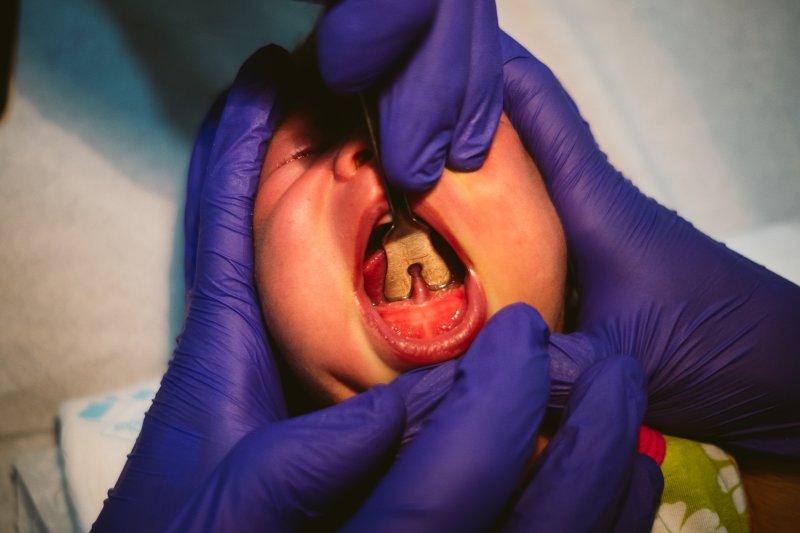
As a new parent, you may wonder why your baby is struggling to latch or take a bottle. You may feel as if your inability to nurse successfully is why you’re experiencing depression. What you may not know is that your child’s lip or tongue tie might be the reason. If this concept sounds foreign to you, you’re not alone. Many individuals are unfamiliar with this issue or have not heard of it being a problem for decades. But now, you might find yourself asking, “Why is there suddenly an increase in lip and tongue ties?” Read on to discover the answer.
Why Are Lip and Tongue Ties More Prevalent Now?
Lip and tongue ties are not a new development. Children have struggled with these restricted bands of tissues for centuries. Although the methods used for treatment have drastically changed, so has the actual problem.
Long before modern medicine and dentistry, children underwent surgical procedures that saw physicians using sharp tools to release these tissues located behind the upper lip and underneath the tongue. This was during a time when breastfeeding was the main source of nutrients for infants.
Fast forward to the 20th century, and with the creation of baby formula, many doctors and nurses found it to be just as beneficial (if not more) as breastfeeding. Encouraging mothers to make the switch, lip and tongue ties became less of a problem for dentists and physicians because the use of a bottle allowed the milk to flow more freely, requiring less work on behalf of the child.
Now that breastfeeding is once again popular among mothers, dentists are beginning to see more cases of lip and tongue ties than before. As a result, frenectomies are now becoming a more common practice as women express their struggles with nursing.
What Are the Signs Your Child Needs a Frenectomy?
Knowing whether your child needs a frenectomy or not will require a thorough consultation with their pediatric dentist; however, as a parent, you can more confidently determine if there is a problem long before your first appointment. If you notice any of these signs, don’t wait to seek help for your little one:
- Difficulty latching
- Acid reflux or colic
- Fussiness
- Chronic fatigue due to prolonged feedings
- Gumming at the nipple
- Blocked milk ducts or mastitis
- Low weight gain
Checking your child’s upper lip and tongue at birth can help to reduce the chances of problems as they grow older. Knowing the signs, should issues develop later on, can ensure you get the help you and your baby need so that you can pursue a healthier, more positive, and nurturing relationship.
About the Author
Dr. Roxanne Clarke is a trusted pediatric dentist in Towson who is passionate about young smiles. With a dental degree from the University of Maryland’s School of Dentistry, she completed a two-year residency in her alma mater’s specialty pediatric dentistry program. Offering assistance to parents who have children with lip and tongue ties, she is equipped to provide the care needed to ensure greater oral movement in the future. Visit our website or call (443) 241-7575 to learn more.
